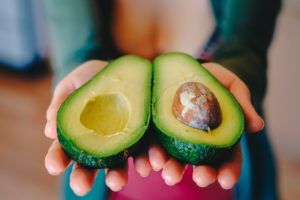- Calls to this hotline are currently being directed to Within Health or Eating Disorder Solutions
- Representatives are standing by 24/7 to help answer your questions
- All calls are confidential and HIPAA compliant
- There is no obligation or cost to call
- Eating Disorder Hope does not receive any commissions or fees dependent upon which provider you select
- Additional treatment providers are located on our directory or samhsa.gov
Overeating: What if My Brain Loves to Eat?

We’ve all been there – you find something you enjoy eating and, next thing you know, you’ve devoured it until you’re uncomfortably over-stuffed. It seems obvious that this behavior likely occurs because we love the food we’re eating so much.
We don’t want to stop. While it may appear as if “love” for a food comes from the stomach or the tastebuds, it has a lot to do with the brain.
Foundational Research
It is known that our brain’s reward processes control appetite. In fact, scientists even pinpointed a neuron in the amygdala of our brain known as PKC-delta that tells us when to stop eating.
A new study has taken this discovery to the next level in an attempt to determine if other neurons impacted our appetite as well.
New Discoveries
The process used in the study is incredibly complicated but the results are pretty straight-forward: when the mice were eating, a neuron known as HTR2a becomes activated, causing feelings of reward which compel the mouse to keep eating even after they are full.
Even more fascinating was researcher’s discovery of how the HTR2a neuron interacts with the PKC-delta neuron mentioned previously. Basically, they can mutually inhibit one another.
That is, eating something terrible activates PKC-delta and tells us to stop eating, inhibiting HTR2-a cells. The same is true in reverse; eating something delicious activates HTR2a cells, telling us to keep eating and inhibiting PKC-delta cells.
How Does This Apply to Humans?
While the impact of these neurons is only shown in mice, researchers feel strongly that the same processes likely occur in humans. If so, it would have significant implications regarding food consumption and the reward system.

These scientific discoveries make it clear that people’s relationships to food and appetite are much more complicated than they seem. As such, helping people with this association will never be as simple as focusing solely on their psychology, biology, or neurology.

As a freelance writer for Eating Disorder and Addiction Hope and a mentor with MentorConnect, Margot is a passionate eating disorder advocate, committed to de-stigmatizing these illnesses while showing support for those struggling through mentoring, writing, and volunteering. Margot has a Master’s of Science in Clinical Mental Health Counseling from Johns Hopkins University.
References:
[1] Douglass, A. M., et al. (2017). Central amygdala circuits modulate food consumption through a positive-valence mechanism. Nature Neuroscience, 20, 1384-1394.
The opinions and views of our guest contributors are shared to provide a broad perspective of eating disorders. These are not necessarily the views of Eating Disorder Hope, but an effort to offer discussion of various issues by different concerned individuals.
We at Eating Disorder Hope understand that eating disorders result from a combination of environmental and genetic factors. If you or a loved one are suffering from an eating disorder, please know that there is hope for you, and seek immediate professional help.
Published on October 20, 2017.
Reviewed By: Jacquelyn Ekern, MS, LPC on October 20, 2017.
Published on EatingDisorderHope.com
